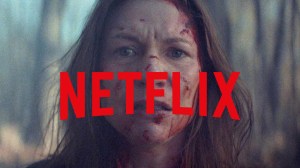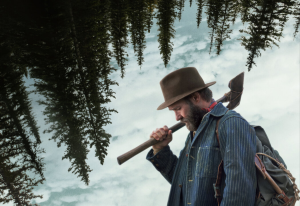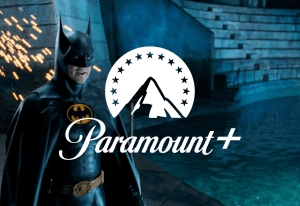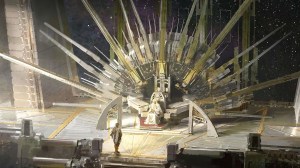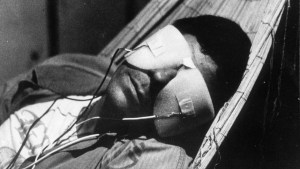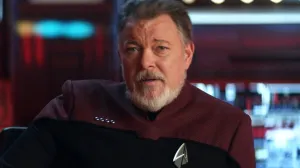Matt Fraction has a lot on his plate—and for once, it doesn’t involve Thunder Gods, billionaire tech-heads, or anything resembling brightly colored spandex. Fraction, who launched himself into comics stardom with highly revered runs with Marvel’s biggest heroes, is pulling back from the House of Ideas in favor of creator-owned character-driven work at Image. While some may see the change as a major career shift, Fraction just sees it as a form of literary cross training. As he wraps up his final Marvel title, continues on Time’s comic of the year, and lays the foundations for his most ambitious creator-owned series yet, Fraction chatted with ComicBook.com about the next stage in his evolution as a writer.
Videos by ComicBook.com
So let’s kick things off by discussing that tweet you made the other day about your final Hawkeye issue.
I thought that was a matter of public record. There was a solicit that mentioned that it was the finale. People went nuts. My social media life blew up for like, a week. It was amazing and flattering, but when Marvel announced the finale I thought it was clear. [Editor’s note: Marvel’s solicitations for Hawkeye #21 say that it is the first chapter of storyline entitled “Finale.”] I’m struck. It’s still a moving and touching response, if totally unexpected (laughs).
It’s not my place to say one way or the other, but I can’t imagine that the book won’t continue once we’re gone. Issue #22 will be our last issue, unless something weird happens. We’ve had weird things happen before, like adding issues or doing other things.

So was Issue #22 just the natural end point of the story that you wanted to tell?
Yeah. It’s the end of the story of Clint’s building. We’ve taken Clint apart, and by the time we get to issue #22, we’ll have put him back together again, and have answered everything with a natural resolve. It felt like a resting point. We could decide we could either keep pushing from there or move on to other things, and we decided to move on. Very much like “The Immortal Iron Fist,” I didn’t want to be the guy who ruins Hawkeye by keeping it going. This is a good place to stop, so we thought, “Oh, we can stop here.”
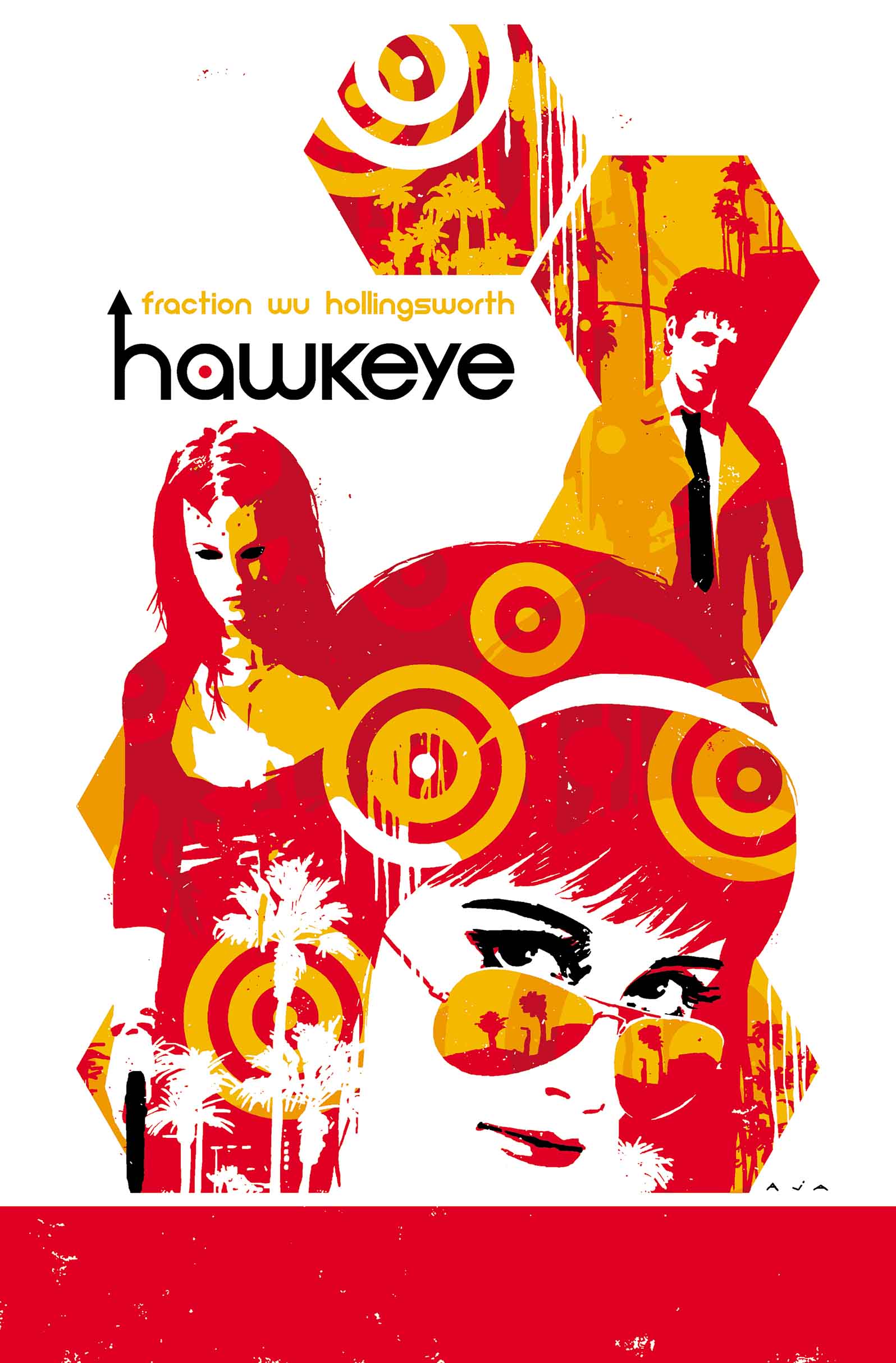
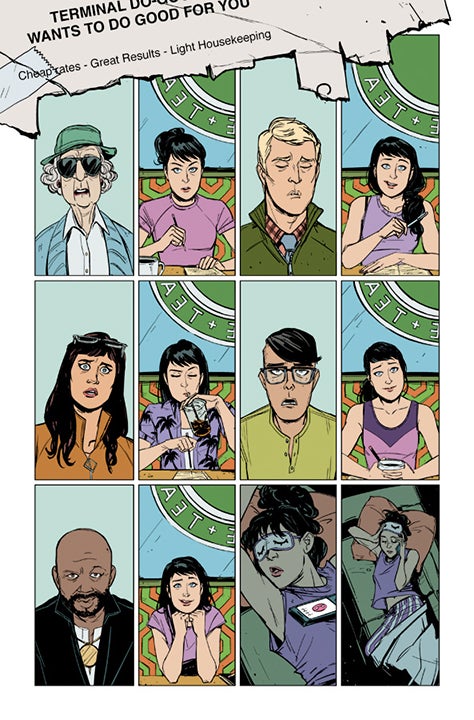

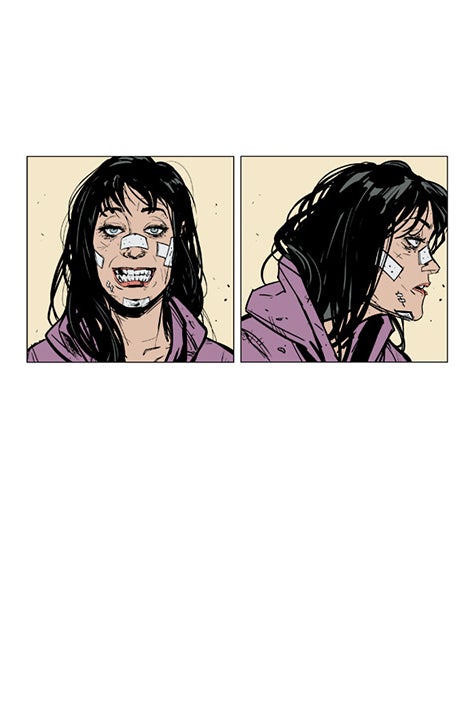
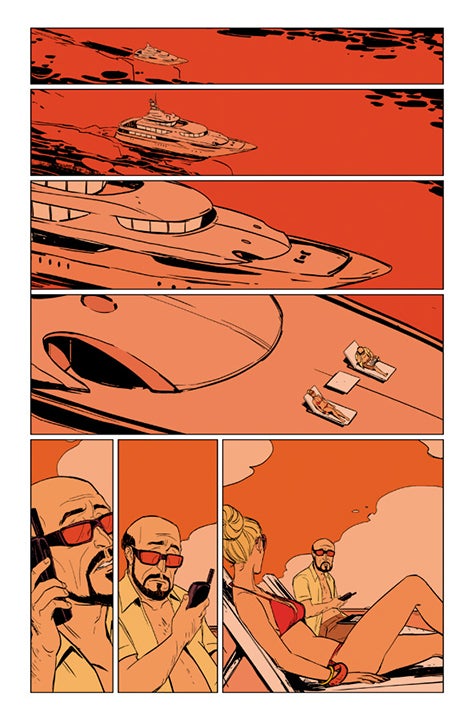
Hawkeye is the only title that you’re writing for Marvel right now. Do you have any other projects with them planned post-Hawkeye?
I don’t.
So, will your focus now be solely on creator-owned projects?
Yeah, project in and out of the comics world.
What non-comics work are you tackling right now?
Um…let’s talk about that later!

Fair enough! Speaking of creator-owned books, “Casanova” is moving back to Image after spending a few volumes under Marvel’s Icon imprint. Will this shift in publishers affect the story and the way that you’ll tell it?
No, it’s still the story we would have told. There are some different things, but I feel that Casanova Volume II was incredibly different from Casanova Volume I, and I feel that III was different from I and II. So I think it’s Casanova’s job to reinvent itself every storyline. This is a midpoint story. When Volume III opens up, Casanova has near-complete amnesia, with no recollection of who he is. So it’s a perfect jumping-on point for readers, because the main character doesn’t know any of his back-story, either. It’s him solving this mystery once he wakes up in what is functionally our world. He’s somehow moved from the more fantastic worlds that the story started in. So he’s here in this flesh-and-blood world now, and things start to get weird. Things that wouldn’t normally happen in our world start to happen that may or may not be connected to Casanova. There’s connections to Casanova’s past that will show up, which longtime Casanova readers will appreciate, and new readers will be able to understand for the ride. It’s very different from the other volumes so far. [Series artist] Fabio Moon is cranking through the second issue as we speak.

Nice. And what’s going on in the world of “Sex Criminals” right now? How’s that book going?
That is the most successful thing I’ve ever been involved with. It’s insane. I am incredibly flattered and astonished by the response, as is [series illustrator] Chip Zdarsky. We’re going to keep going with it until it stops being fun.
So where did you even cook up the series’ premise?
I wish I knew. It mostly came from wanting to work with Chip. I’m not sure where the rest came from. I wanted to do a comedy, but I wanted to do a dirty comedy. I love those Adam Sandler, “Billy Wilder” era movies, and how far he pushed the envelope, especially for the time they came out in. And I love that kind of post-Apatow, post Freaks & Geeks wave of blistering honesty in comedy. So I wanted to get into that. But it mostly came from wanting to work with Chip, and making each other laugh. I get this tingle when new pages come in. It’s so great to see. I’m having the time of my life.
You’ve run the gamut of genres with your comics portfolio, from grandiose superhero adventures to these tongue-in-cheek, street-level books. What genre have you enjoyed writing the most so far for comics? Which genres push you the most?
My mission is to not get bored. I’m an alcoholic and drug user in recovery, and boredom is not good for me on any level. So I want to keep myself engaged and committed. I want to be into what I’m doing. My mission has always been to vary projects, so nothing similar happens at the same time. It’s meant to be like cross-training. On some days you’re going to work on this muscle group, and some days you’re going to work on that muscle group. If I’m comfortably ahead, and all of my partners are fed and happy, then I can kind of do whatever I want. Wherever the wind carries me, I can bark up that tree that day. The goal is to do as many different things as possible, and to make sure it has a different taste from what I did before.
Is there one particular genre that you’ve found to enjoy the most?
Not really, because if I’m doing it right, then it’s exactly what I need at the time. I like being diverse. I like having a lot of different things going on, and the coordinates are spaced apart on the map.
Is that why we’re seeing the pendulum shift away from large-scale superhero work to smaller indie projects? Is this the new muscles that you want to exercise?
Well, I had these projects set up when I was coming off of really long runs on some books. I had four-plus years on Iron Man, and three-plus on Thor, with an event in the middle. I had done a lot of superhero stuff. So when I started wrapping up and was trying to figure out what came next, the urge was to do something as wildly different as possible. Chip and I didn’t think Sex Criminals was going to last three issues. I thought we’d have to pay for the fourth issue entirely by ourselves, and then we’d get a little trade that would make us laugh. Part of it was just not believing that this stuff would happen. I thought, “Oh, this will be fun, I’ll just bang this out.” It was the same case with “Satellite Sam.” We got into it, and then we realized that we both really loved doing it, and wanted to keep going. I kept asking [series artist] Howard [Chaykin] for permission to keep going. It was only supposed to be five or six issues, but once we got into it, I realized that I loved this world and I loved these people. I wanted to tell their stories. I wanted it to be an ensemble book instead focusing on this guy. Creative accidents happen, and you just have to go where the winds carry you that day.
Interesting. What’s it like starting a book that you think will be short-lived, with a very limited universe or story in mind, only to find that the unforeseen success makes the story longer than you intended? Do you normally have the whole story fleshed out beforehand, or do you have to backtrack and augment the story to suit the increased length?
Sometimes you have to change. In weaker cases, I think you can see the story sag once we’ve realized that we’re going to tell more story than we originally intended. You can see where it catches us off guard, and where recalibrate what we’re doing. You try your best to make it seem like you knew what you were doing, and that it was all pre-conceived, and you had nothing but the utmost confidence in your little book of beat-off jokes. But really, it’s a mystery. It’s amazing when it happens. If I knew, I would have done it years ago. In the case of Satellite Sam, it happened very quickly. As we were writing it, I knew that it the book going to be black and white. We knew it was going to be more affordable, and what the margins were. This gave us a little slack. Everything came together with Satellite Sam when we were only in the second issue. I realized that I wanted to keep going with the project, and I asked Howard if he was ok with that. Howard was having the time of his life drawing issue one, so we were able to make it look like we knew what we were doing early on.
With Sex Criminals, you can see the works suffers a little bit, because we were caught off guard. We were three issues in before we went “oh gosh, this is Time’s book of the year!” [Laughs] But hopefully, if you’re ahead enough in your schedule and no one is scrambling to make ends meet, you can reconfigure. It’s like working in clay, not stone—hey, that’s a good metaphor. Nailed it!

Well played. Another project I wanted to discuss was “ODY-C”, which we haven’t seen much of yet. What can you tell us about the main premise of series, where you flip the gender of every character from Homer’s Odyssey?
As I get into writing the story, I’m not sure that there are going to be many men in it. It’s a re-telling of the Odyssey in chronological order, along with the stories of the other warriors that left Troy, like Agamemnon. All of the men are women, and it’s all in deep space. It’s very cosmic, very hallucinatory science fiction. We have this entire universe that Christian Ward is designing, and the whole cloth is so eye-popping. Hopefully it’s a little brain bending and mind-melting. It’s all of these myths that are 26 centuries old, combined with post-Kirby cosmic sensibilities and gender politics. It’s as much Margaret Atwood as it is Wonder Woman.
Is there one character in particular that you think actually works better as a female?
Definitely Odysseus, or “Odyssia” in our book. It’s changes everything. It enriches the whole tale and makes it completely different. I’m just really now tearing into it. The complete inversion of the patriarchal structure reveals an awful lot about the story, the consequences, and what the tale of the Odyssey and the Iliad are really about. It shows how women have been treated for 26 centuries.
Interesting. What types of realizations have you made?
Hopefully if I do my job right, that’s what the book will be about. It’s at a stage where the water is just starting to bubble. Part of the caginess is that I just don’t know. I’m not quite there yet—I’ll know in a week. That’s where we are. But I think that gender stuff is going to be best read than “man-‘splained.” I have my theories about it, and I become more energized and excited by the gender stuff the more the story plots itself out on the page.
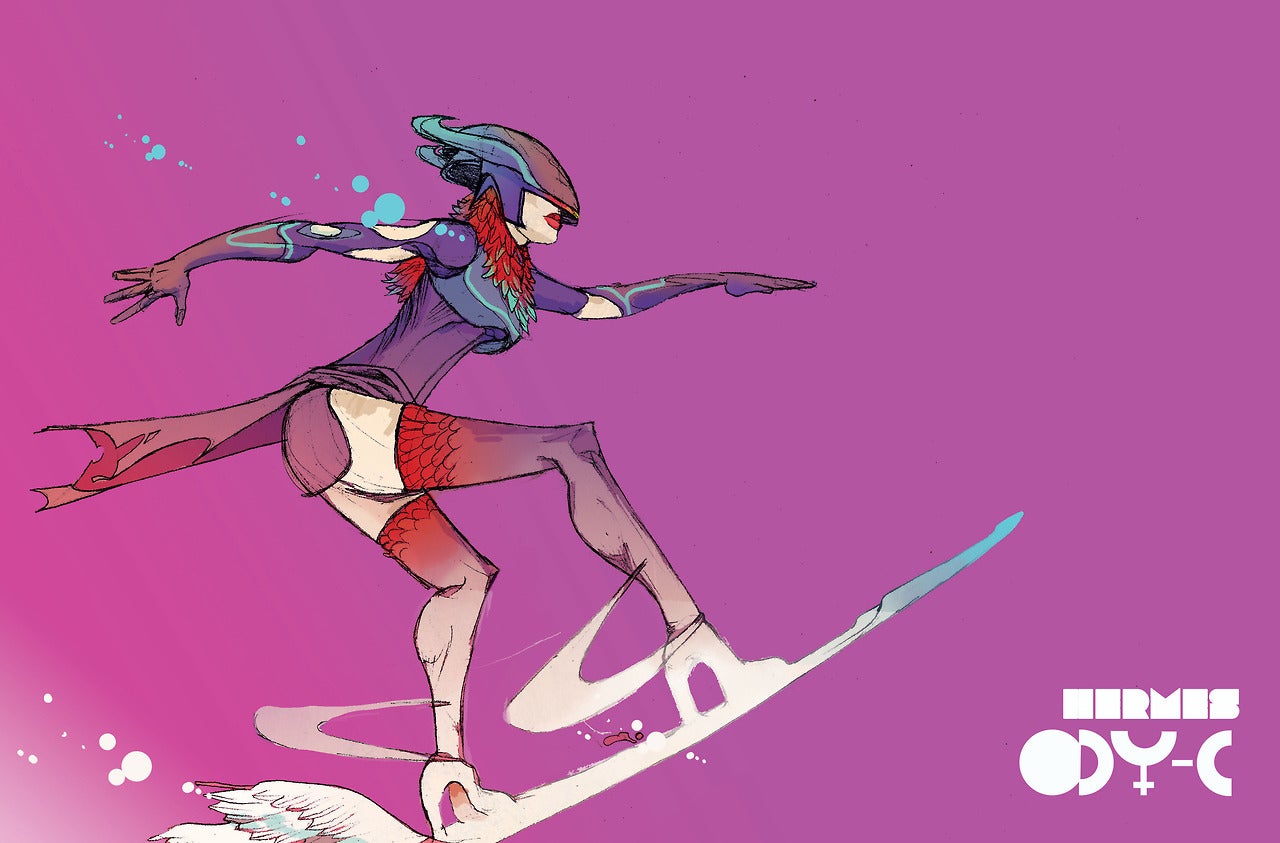
Where you always planning on doing the gender-swap for this story?
Yeah, that was the start of it. I realized that they were never going to let me write “Wonder Woman,” and I wanted to write a classic mythological hero for my daughter. I thought “Well, you don’t get much more classical than Odysseus. So I’ll do the Odyssey with a gender-switch.” Then as I did it, I realized what the Iliad was really about and what the Odyssey was about. It dawned on me that I had stumbled ass-backwards onto something really interesting, and that this was my chance to speak about something that comics tend to not say.
So to wrap up and look at the bigger picture, what are some things that you’re learning as a comics writer? What are some of your challenges, strengths, or things that you’re constantly thinking about improving?
Everything. It’s a constant process. The worst day in comics is Wednesday, because that’s the day the comics come out and all of your mistakes becomes permanent. I’m constantly thinking about that stuff. It keeps me up at night. I fill notebooks up with these thoughts. I love the craft of comics and what you can do with them. I want to be better at it, and learn more. I’m starting to figure out what comes next, and I want to do a project that’s really formal. Through Howard Chaykin, I’ve discovered Stephen Sondheim, who’s written these two amazing books about the creative process and his work. So I’m obsessing over how traditional musicals work, and how songs are written for Broadway musicals. It’s similar to comics. I’m surprised how the two different art forms are like kissing cousins. They’re so similar, in a lot of ways. I want to be better, and cleaner, and crisper and smarter. I just want to be better at everything.

